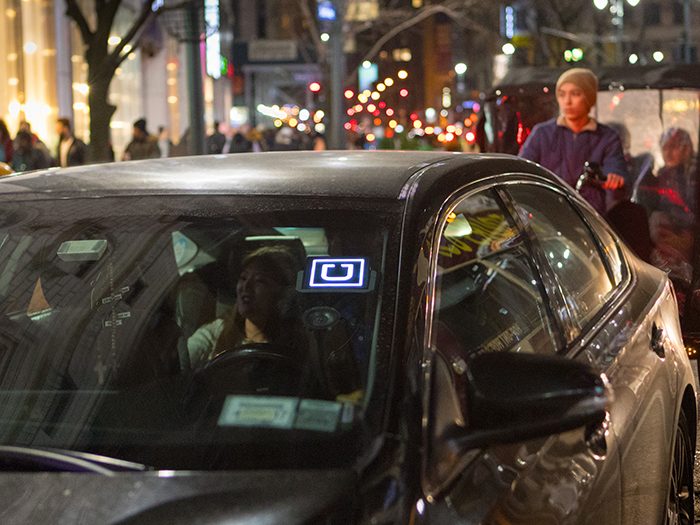Uber Travelers Beware: Your Driver May Turn Around and Rob Your House

An Uber driver in California had a novel idea — drop off passengers at the airport, then burglarize their home.
Jackie Gordon Wilson, 38, was arrested by the San Mateo Police Department for attempting to burglarize not one but two houses belonging to people he’d recently driven to the airport. At one home, a house alarm allegedly scared him away. In the other, Wilson allegedly ransacked the home and stole multiple items.
There have been rideshare safety issues before …
- Back in 2013, a woman alleged that an Uber driver grabbed her by the throat. Then-CEO Travis Kalanick said the incident wasn’t real and the company wasn’t responsible.
- Delhi, India banned Uber in 2014 after a passenger reported that she was raped by her driver.
- After riders claimed that Uber misled them about safety practices, Uber agreed to pay $28.5 million to 25 million riders in 2016 and can no longer use terms like “industry-leading” or “best in class” when describing its background checks.
- In 2018, CNN found that at least 103 Uber drivers and 18 Lyft drivers in the U.S. have been accused of sexually assaulting or abusing passengers in the previous four years.
- On March 29, 2019, Samantha Josephson entered a black car she thought was her Uber ride. The 21-year-old was found dead the following day. The South Carolina House of Representatives passed a bill saying that rideshare vehicles must have illuminated signs, while Change.org is petitioning for QR codes on rideshare vehicles to insure that riders are entering the correct car.
What kinds of exposures come with Uber or Lyft business accounts?
If you use ridesharing to manage rides taken by employees or order rides for customers or partners, there’s more exposure than you might have realized. Risk & Insurance® associate editor Katie Dwyer took a deep dive into the topic recently. She explained that cyber exposures are an important consideration.
“Integrating with a rideshare platform creates another point of entry into a company’s corporate network. This exposes confidential company data to theft and increases vulnerability to a malware attack,” the story said.
What happens if an employee gets injured during the ride? They may be entitled to workers’ compensation insurance and could be named in a lawsuit along with the transportation company.
There’s also the possibility of a driver acting criminally: “Business users have no control over the vetting process,” Dwyer wrote. “This applies not just to a driver’s criminal history but also his or her behavior behind the wheel. This is where contractual review becomes critical.”
I take rideshares to the airport … should I be worried?
Even if a driver knows nobody is home, a house robbery is a brazen crime.
It’s quite a leap to think it’ll become commonplace. But the San Mateo incident underscores the idea that rideshare drivers have access to personal information and could use it for deviant purposes. &










